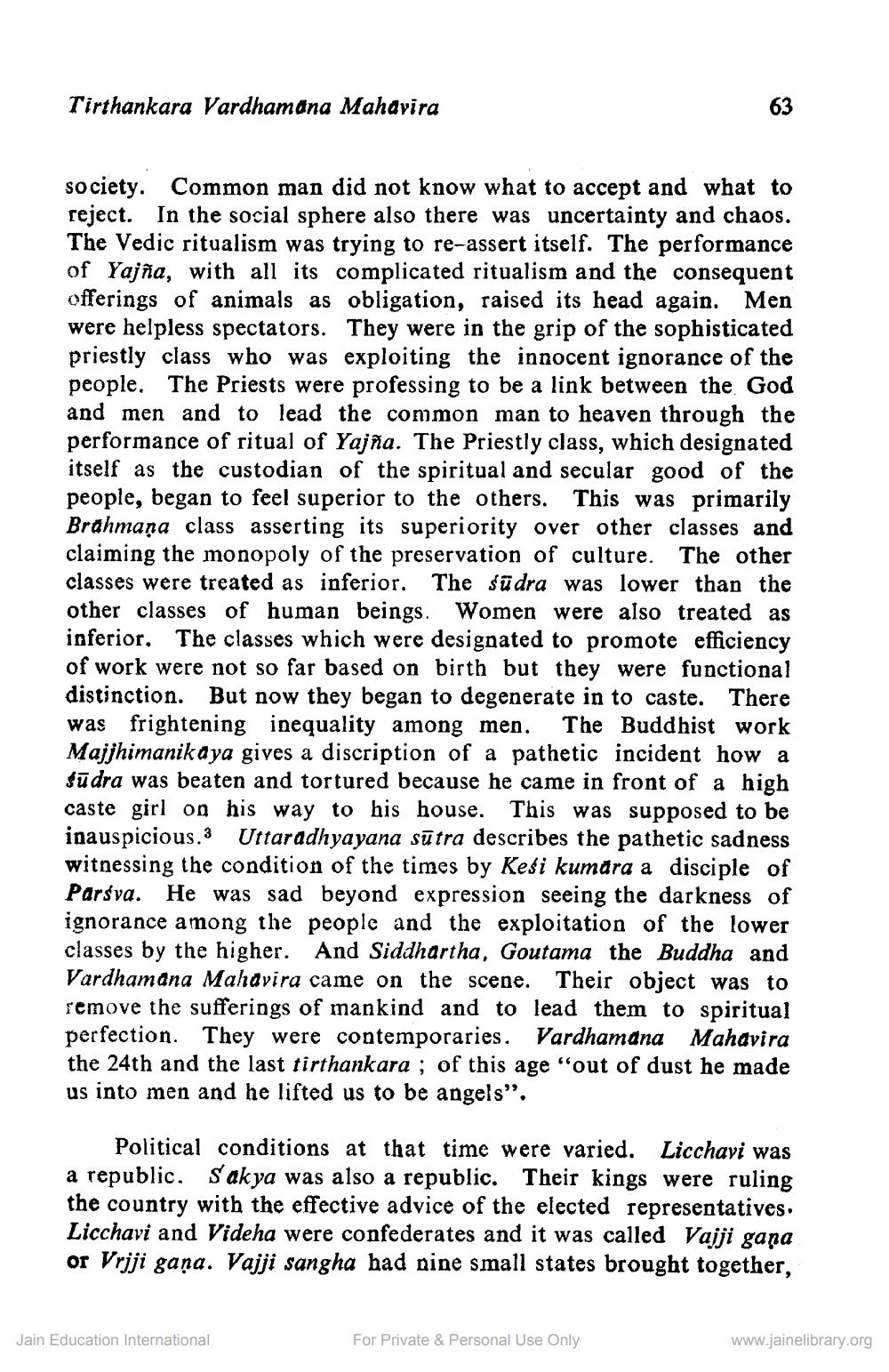________________
Tirthankara Vardhamana Mahavira
society. Common man did not know what to accept and what to reject. In the social sphere also there was uncertainty and chaos. The Vedic ritualism was trying to re-assert itself. The performance of Yajña, with all its complicated ritualism and the consequent offerings of animals as obligation, raised its head again. Men were helpless spectators. They were in the grip of the sophisticated priestly class who was exploiting the innocent ignorance of the people. The Priests were professing to be a link between the God and men and to lead the common man to heaven through the performance of ritual of Yajña. The Priestly class, which designated itself as the custodian of the spiritual and secular good of the people, began to feel superior to the others. This was primarily Brahmaņa class asserting its superiority over other classes and claiming the monopoly of the preservation of culture. The other classes were treated as inferior. The südra was lower than the other classes of human beings. Women were also treated as inferior. The classes which were designated to promote efficiency of work were not so far based on birth but they were functional distinction. But now they began to degenerate in to caste. There was frightening inequality among men. The Buddhist work Majjhimanikaya gives a discription of a pathetic incident how a $ūdra was beaten and tortured because he came in front of a high caste girl on his way to his house. This was supposed to be inauspicious.3 Uttaradhyayana sūtra describes the pathetic sadness witnessing the condition of the times by Kesi kumara a disciple of Parsva. He was sad beyond expression seeing the darkness of ignorance among the people and the exploitation of the lower classes by the higher. And Siddhartha, Goutama the Buddha and Vardhamana Mahavira came on the scene. Their object was to remove the sufferings of mankind and to lead them to spiritual perfection. They were contemporaries. Vardhamana Mahavira the 24th and the last tirthankara ; of this age "out of dust he made us into men and he lifted us to be angels".
Political conditions at that time were varied. Licchavi was a republic. S'akya was also a republic. Their kings were ruling the country with the effective advice of the elected representatives. Licchavi and Videha were confederates and it was called Vajji gara or Vriji gaņa. Vajji sangha had nine small states brought together,
Jain Education International
For Private & Personal Use Only
www.jainelibrary.org




